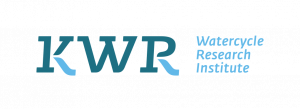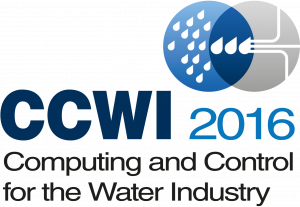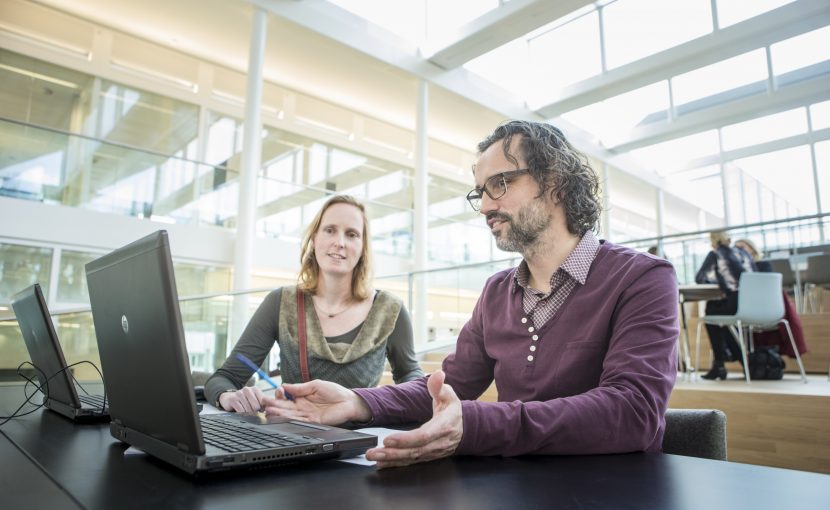ICT, computer modelling and automation are increasingly important tools in the water sector and water research. The purpose of the biennial Computing and Control for the Water Industry (CCWI) conference is to strengthen knowledge sharing and collaboration between water sector experts and researchers who use ICT in water-related research.
From distribution to green roofs . . .
The 14th International CCWI conference, organised by KWR with the support of International Water Conferences (IWC), will be held in Amsterdam on 7, 8 and 9 November, 2016. The conference will put the latest developments in the fields of drinking water distribution, sewer systems and wet-weather overflow in the spotlight. Special attention will be focused on the possibilities of managing these processes in practice by means of conceptual and numerical models. The presentations will cover a wide range of subjects: from the localisation of leaks in supply networks to investment planning for asset management, and from the analyses of big data, the benefits of green roofs, energy extraction from mains, to optimal mains network design.
. . . and from early-stage ideas to practical applications
The conference provides a unique opportunity for researchers and water-practice people from all over the world to share results and give and receive feedback. They will jointly examine early-stage ideas, the results from practice and everything in between. The keynote speakers are Loet Rosenthal, Director Water Supply at PWN water company, and Zoran Kapelan, Professor of Water Systems Engineering and Head of the Water and Environment Group at the University of Exeter (UK). On 7 November, Rosenthal will speak from the perspective of people in water practice about collaborating with researchers, while Kapelan will provide the scientists’ perspective the following day.
International programme
The programme includes research and practical examples from all over the world, and can be seen via an app or a leaflet. You can register here.
Strong Dutch representation
Dutch researchers and the Dutch water sector are amply represented among the contributors. The conference therefore also offers excellent opportunities to learn about recent developments in the Netherlands (and Belgium):
- Designing optimal sized isolation sections in drinking water distribution Systems – A. Moerman, E.J.M. Blokker, T.M. Walski, R. Diemel, The Netherlands
- Flow intake control using dry-weather forecast – O. Icke, J. Wuister, E. van Dijk, K. van Schagen, The Netherlands
- Cost-efficiency of multi-purpose sensor networks for drinking water distribution networks – J. van Summeren, D. Vries, I. Vertommen, P. van Thienen, M. IJszenga, The Netherlands
- Resource recovery based sanitation: Integrating collection and transport with treatment and re-use – J. Vreeburg, G. Zeeman, The Netherlands
- Using big data to estimate current and future resource use in the water-food-energy nexus, focussing on water withdrawals – J. Sušnik, The Netherlands
- Comparing results of four decision support software packages on mains replacement – R. Beuken, E. Trietsch, B. Jacobs, R. Diemel, P. Horst, J. Louter, R. Schipdam, the Netherlands
- Application of the City Blueprint Framework and the City Amberpint Framework to four case study cities – A. Strzelecka, B. Ulanicki, K. van Leeuwen, S. Koop, C. Melek, K. Alhan, M. Arnold, N. Bazzurro, C. Makropoulos, R. Elelman, United Kingdom
- Review of applications of SIMDEUM, a stochastic drinking water demand model with small temporal and spatial scale – M. Blokker, C. Agudelo-Vera, A. Moerman, P. van Thienen, I. Pieterse-Quirijns, The Netherlands
- Real-time control of sewer pumps to reduce operational costs at waste water treatment plant Garmerwolde – K. van Heeringen, The Netherlands
- Real-time model based process monitoring of drinking water treatment plants – N. Wolthek, R. Wuestman, J. Wuister, K. Kerkhoven, J. Fitié, R. Kersten, The Netherlands
- Finding subsurface (anthropogenic) heat sources that influence temperature in the drinking water distribution system – C. Agudelo-Vera, M. Blokker, the Netherlands
- Surface water quantity and quality modelling in support of raw water intake for drinking water production, case study – WPC De Blankaart G. Peleman, L. Verdickt, N. Desmet, J. Dams, J. Bronders, Belgium
- Modeling particle accumulation and discoloration risk in drinking water distribution networks – J. van Summeren, P. Schaap, M. Blokker, the Netherlands
- Model-based leak localization in small water supply networks – J. Moors, L. Scholten, J. P. van der Hoek, J. den Besten, The Netherlands
- Replacement of the most risky drinking water distribution mains by ( self-cleaning ) mains based on a blue-print – P. Horst, The Netherlands


